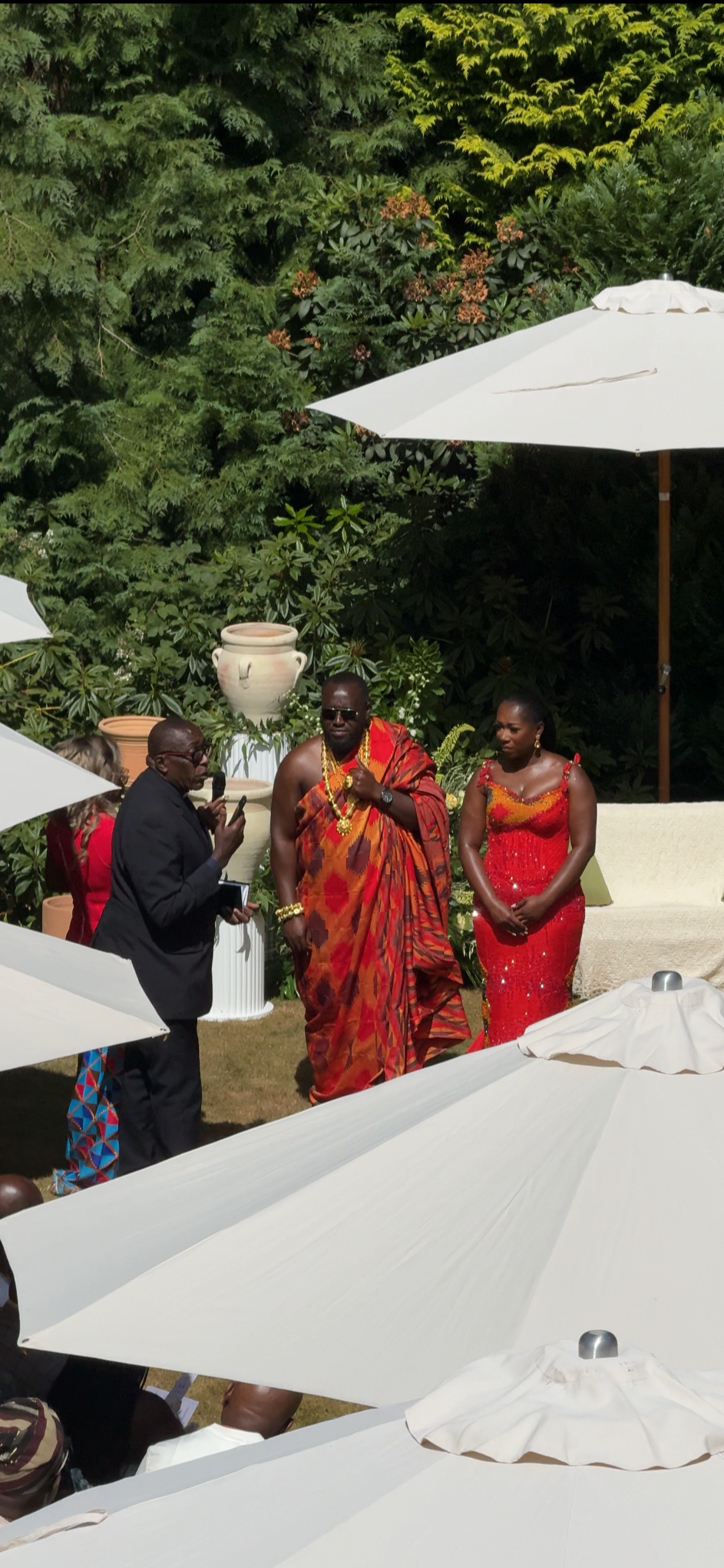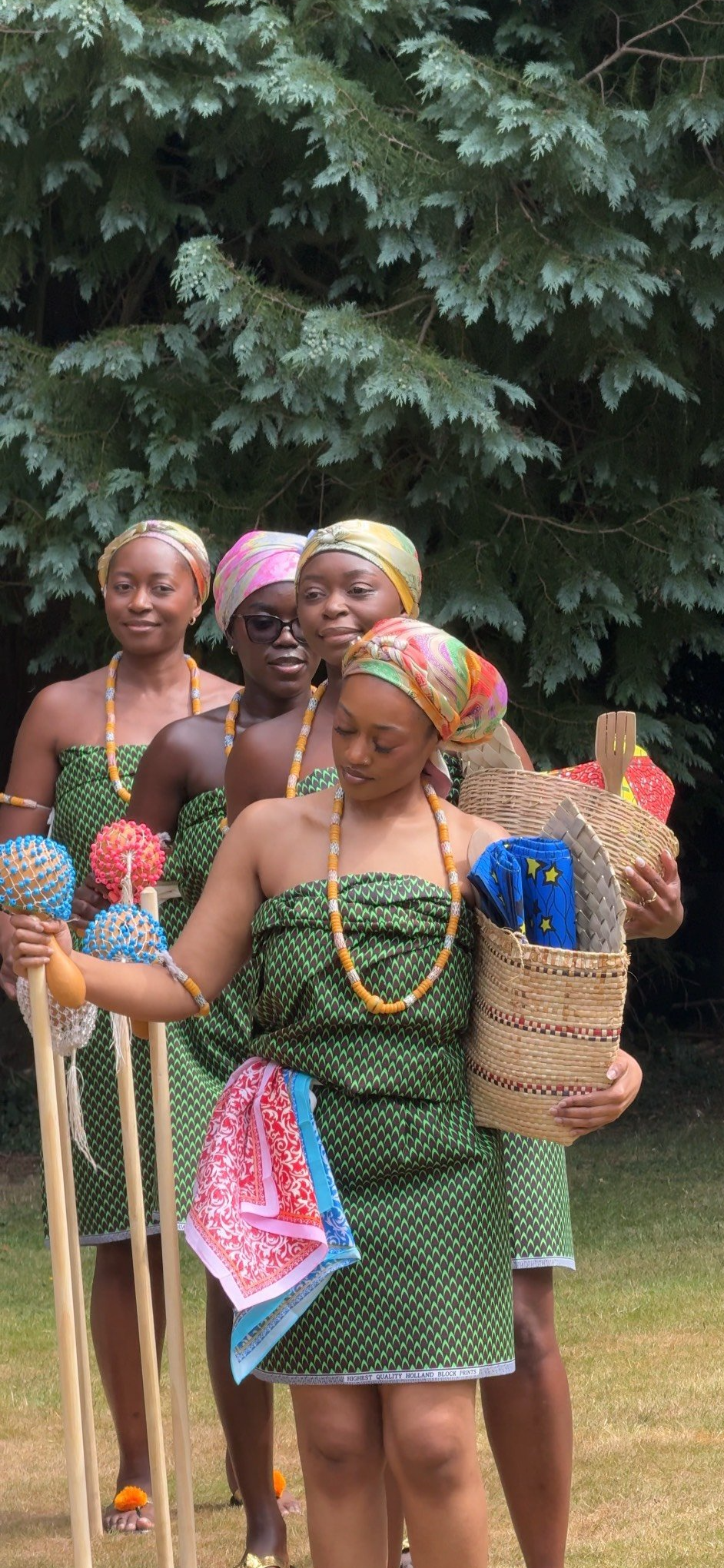Why I Didn’t Have a White Wedding
When you're Ghanaian, it's almost a given you’ll have at least two weddings. A traditional ceremony to honour your roots and a white wedding and perhaps even a third to serve a registry look. It’s become a kind of unspoken checklist.
But when my husband and I began planning our own wedding, we knew almost immediately that three weddings weren’t in the cards. In fact, even two felt like too much, not just in terms of cost, but logistics, energy, and emotional bandwidth. Two venues, two caterers, two full “run-of-day” schedules? We’d need two heads. S
o, we made a decision, we would only have one large wedding and it would be traditional.
A Love Letter to Ghana, in the UK
In a dream world, we would’ve held our ceremony at my parents’ home in Ghana. But like many diaspora couples, our reality meant making space for the people we love most — most of whom live in the UK so we swapped out our Ghanaian family compound for a beautiful manor house in the English countryside. Its expansive grounds gave us the feel of an outdoor Ghanaian garden ceremony, a setting that honoured our roots in a way that felt grounded, not performative.
Our decision wasn’t made out of protest against white weddings. In fact, we kept many of its hallmarks, a wedding cake, first dance, speeches, and toasts. What we did choose was to place our culture at the centre of our celebration, rather than sandwiching it into one side of a doubleheader weekend.
And yes, I still got to wear a white dress for our registry ceremony, because like many brides, I wanted that moment too. It gave us just enough of the “white wedding” feel without needing to plan a second full-scale event.
More Than Just Aesthetic – A Cultural Rite
Sure, our Twi is a bit rusty and our Ewe needs work but this wasn’t just an aesthetic choice, it was a way to actively engage in cultural rites so often lost through migration.
Having our families come together in a traditional Ghanaian engagement, my dowry presented in calabashes and woven baskets, my father asking three times if we accept the proposal and finally dancing down the aisle to Twi gospel – these were sacred moments. Not only did they connect us to our heritage, but they offered our friends and wider community a glimpse into the rich symbolism of Ghanaian matrimonial tradition.
And yes, we still had a pastor bless our union, someone who’s known us since we were children. The spiritual foundation remained, just in a way that reflected where we come from.
Honouring the Present, Not Just the Past
The word “traditional” often implies something outdated, but let’s be honest, traditional weddings aren’t going anywhere. They are, in many communities, the original and true wedding. The ceremony where the families meet, dowries are exchanged, and ancestral customs are honoured. That’s real. That’s valid.
People have been married this way for centuries and so it shall be for centuries to come. These rituals are not relics; they’re living, breathing testaments of who we are and where we come from.
In a time when Black British identity is constantly being negotiated and redefined, our wedding became a way to showcase the beauty of sitting at that intersection. There we were in an English manor house, led in by kete drummers, dancing adowa with my mother, sister, and aunties, and ending the night with Madonna, Candy, and Amapiano.
We didn’t choose between worlds, we brought them together.
Let This Be the Standard, Not the Exception
Our decision to have only a traditional wedding wasn’t about rejecting the white wedding. It was about reframing what a “complete” wedding looks like. It was about reminding ourselves – and others – that the ceremonies from home are not secondary, not optional, not less than. They’re whole. They’re joyful. They’re ours.
So maybe it’s time we stop calling them "traditional weddings" and start calling them what they are: weddings.


